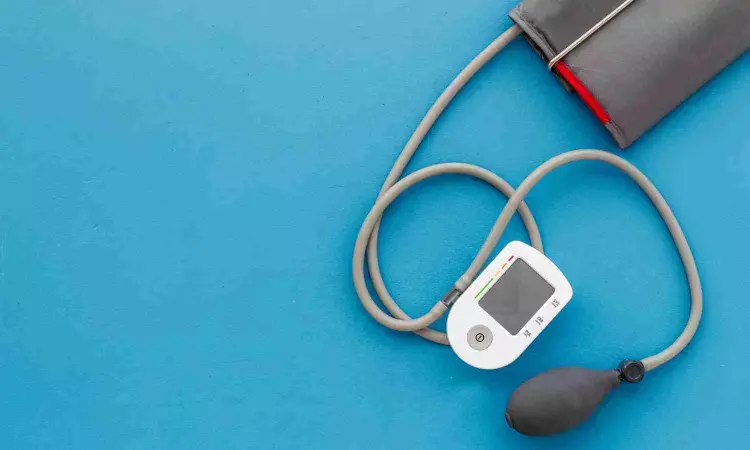- Home
- Medical news & Guidelines
- Anesthesiology
- Cardiology and CTVS
- Critical Care
- Dentistry
- Dermatology
- Diabetes and Endocrinology
- ENT
- Gastroenterology
- Medicine
- Nephrology
- Neurology
- Obstretics-Gynaecology
- Oncology
- Ophthalmology
- Orthopaedics
- Pediatrics-Neonatology
- Psychiatry
- Pulmonology
- Radiology
- Surgery
- Urology
- Laboratory Medicine
- Diet
- Nursing
- Paramedical
- Physiotherapy
- Health news
- Fact Check
- Bone Health Fact Check
- Brain Health Fact Check
- Cancer Related Fact Check
- Child Care Fact Check
- Dental and oral health fact check
- Diabetes and metabolic health fact check
- Diet and Nutrition Fact Check
- Eye and ENT Care Fact Check
- Fitness fact check
- Gut health fact check
- Heart health fact check
- Kidney health fact check
- Medical education fact check
- Men's health fact check
- Respiratory fact check
- Skin and hair care fact check
- Vaccine and Immunization fact check
- Women's health fact check
- AYUSH
- State News
- Andaman and Nicobar Islands
- Andhra Pradesh
- Arunachal Pradesh
- Assam
- Bihar
- Chandigarh
- Chattisgarh
- Dadra and Nagar Haveli
- Daman and Diu
- Delhi
- Goa
- Gujarat
- Haryana
- Himachal Pradesh
- Jammu & Kashmir
- Jharkhand
- Karnataka
- Kerala
- Ladakh
- Lakshadweep
- Madhya Pradesh
- Maharashtra
- Manipur
- Meghalaya
- Mizoram
- Nagaland
- Odisha
- Puducherry
- Punjab
- Rajasthan
- Sikkim
- Tamil Nadu
- Telangana
- Tripura
- Uttar Pradesh
- Uttrakhand
- West Bengal
- Medical Education
- Industry
Timing of dosing of BP medication makes no difference, reports research

Evening administration of blood pressure (BP)-lowering medications did not reduce the risk of cardiovascular events or death compared with morning administration, according to late-breaking research presented in a Hot Line session today at ESC Congress 2024.
“Evidence suggests that higher-than-normal levels of BP at night are associated with an increased risk of cardiovascular events. However, trials that have assessed the impact of administering BP-lowering medications at night have shown mixed results. In this meta-analysis, we gathered together all of the trial data and concluded that the timing of dosing does not affect outcomes,” explained study presenter, Professor Ricky Turgeon from the University of British Columbia, Vancouver, Canada.
A systematic review and meta-analysis was undertaken that included all parallel-group randomised controlled trials (RCTs) comparing night-time and morning administration of all BP-lowering medications. Studies had to have at least one cardiovascular outcome of interest, with follow-up of ≥500 patient-years per group and median follow-up ≥12 months. Trials were assessed using the Cochrane Risk of Bias 2 tool.
The primary endpoint was major adverse cardiovascular events (MACE, a composite of death from any cause, non-fatal myocardial infarction, non-fatal stroke and heart failure exacerbation). Secondary endpoints included individual components of MACE, all-cause hospitalisation and specific safety events (fractures, glaucoma-related events and worsening cognition).
Five RCTs were included with 46,606 patients – BedMed, BedMed-Frail, TIME, Hygia and MAPEC. The BedMed, BedMed-Frail and TIME trials were judged to be at overall low risk of bias, while there were some bias concerns with Hygia and MAPEC, particularly regarding the randomisation process.
Across the five trials, the incidence of MACE was not affected by evening vs. morning dosing (hazard ratio [HR] 0.71; 95% confidence interval [CI] 0.43–1.16). In a sensitivity analysis by risk of bias, the HR was 0.94 (95% CI 0.86–1.03) for MACE with evening vs. morning dosing in the three trials judged to have low bias and 0.43 (95% CI 0.26–0.72) in the two trials with bias concerns.
There was no difference in all-cause mortality for evening and morning dosing (HR 0.77; 95% CI 0.51–1.16). Similarly, all other secondary endpoints were not affected by evening vs. morning dosing, including for fractures, glaucoma events and cognitive events.
“Results from the meta-analysis provide conclusive evidence that there is no difference between evening and morning dosing. Patients should take their once-daily BP-lowering medications at whatever time best suits their preferences and circumstances,” concluded Professor Turgeon.
Dr Kamal Kant Kohli-MBBS, DTCD- a chest specialist with more than 30 years of practice and a flair for writing clinical articles, Dr Kamal Kant Kohli joined Medical Dialogues as a Chief Editor of Medical News. Besides writing articles, as an editor, he proofreads and verifies all the medical content published on Medical Dialogues including those coming from journals, studies,medical conferences,guidelines etc. Email: drkohli@medicaldialogues.in. Contact no. 011-43720751


